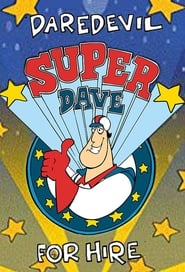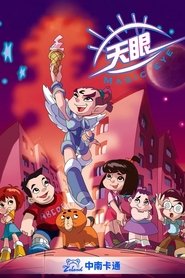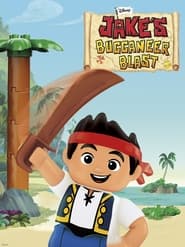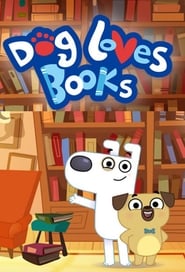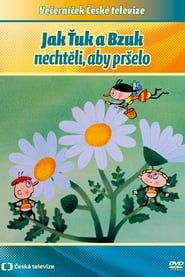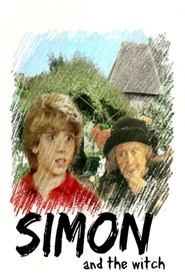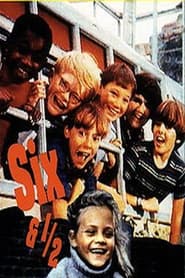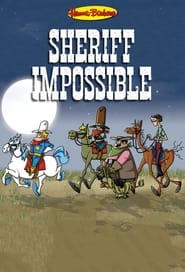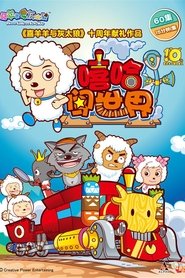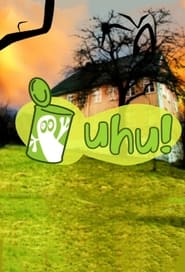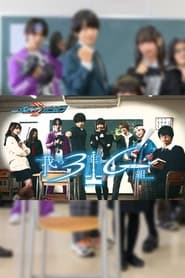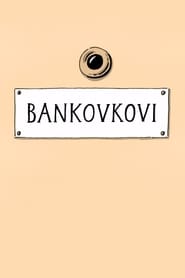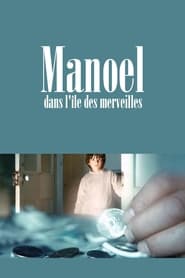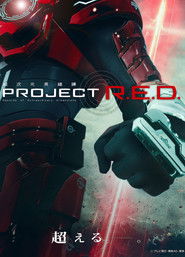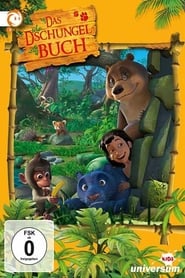Popular Kids TV Series - Page 140
-
Wishenpoof!
2015
Wishenpoof!
2015
star 5Bianca is just like any other little girl, except for one teensy little thing. Bianca has Wish Magic, so she can make wishes come true. Whether she's at home in Wish World, at the Willow Tree with her fairy friends, or at school with her non-fairy friends, Bianca and her hilarious teddy bear sidekick Bob navigate day-to-day problems with a little help from Bianca's mom and of course, wish magic! -
Super Dave: Daredevil for Hire
1992
star 6.5Super Dave: Daredevil for Hire starred and was based on the comedy of Bob Einstein and his Super Dave Osborne persona. Both Bob Einstein and Art Irizawa provided the voices for Super Dave and his assistant, Fuji Hakahito, and also appeared as their characters in live-action skits which ended each episode. -
天眼系列
2005
天眼系列
2005
-
Playbox
1955
Playbox
1955
Playbox was a British children's television show that ran on BBC from 1955 to 1964. Presenters who appeared on it included Eamonn Andrews, Rolf Harris, Tony Hart, Cliff Michelmore and Johnny Morris -
SDGs Mini Drama
2021
SDGs Mini Drama
2021
star 10An irregularly broadcast omnibus series of two-minute mini-dramas based on the 17 goals of the SDGs (UN's "Sustainable Development Goals"). In these short stories, a message is conveyed that we should work together to achieve a society where no one is left behind, and how Japanese society, culture, and traditions are facing each goal. -
The Dog & Pony Show
2020
The Dog & Pony Show
2020
A hilarious series about two very different best friends who leave their magical world of Rainbow Fjörd and move to the not-so-magical big city of UniCity. -
Jake's Buccaneer Blast
2014
The shorts take place in a Lego Duplo styled Never Land as Jake and his crew uncover the pirate pieces of eight said to reveal a hidden treasure. -
Dog Loves Books
2020
Dog Loves Books
2020
The story of bookshop owner, Dog and his best friend, Pug. Whenever they have a problem or a question, they look for the answer in one of their beloved books. -
Jak Ťuk a Bzuk nechtěli, aby pršelo
1994
star 6Two little bumblebees, Bzuk and Ťuk, are worried about the weather again. It bothers them that it's raining on their meadow. And so they set out into the world again to find who is to blame. The wise bee Alka reveals many secrets of nature to the little pilgrims, and with her help the bumblebees finally understand that without the rain, everything in their beautiful meadow would have dried up and withered. -
Simon and the Witch
1987
Simon and the Witch
1987
star 5.5Simon is a very sensible young schoolboy, who has a friend who is a real witch. She is very silly, and a huge showoff. -
The Magnificent Six and 1/2
1968
A group of seven children have various comic misadventures whilst trying to help people, in this series of movies produced by the Children's Film Foundation, based on Hal Roach's "Our Gang" series of comedy shorts. -
Posse Impossible
1977
-
Pleasant Goat and Big Big Wolf
2016
star 7"The Shrunk Lambs: Hip-Hop Train Adventure" is an animated tale where a group of brave lambs embark on a mission to save the withering World Tree. They shrink in size, ride a hip-hop train, and face obstacles like raindrops and fallen leaves. With wit and courage, they overcome dangers, befriend insects, and outsmart the mischievous Big Big Wolf. Their resilience pays off as they successfully rejuvenate the World Tree, showcasing the power of teamwork and determination. -
Uhu!
2001
Uhu!
2001
-
Kamen Rider Gotchard Spin-Off: We Are Class 3G (Gotcha)
2024
star 8In this Blu-ray exclusive spin-off, the main cast of Kamen Rider Gotchard are now students of Gotchard High School with Atropos as their new homeroom teacher?! -
Bankovkovi
2017
-
Manuel on the Island of Wonders
1984
star 6.9This three part French TV serial for children (alternate versions exist as a feature, Manoel’s Destinies, and a 4 part Portuguese TV serial, Adventure in Madeira) is the favourite of many devotees of Raúl Ruiz. This is because it ties the enchantment and mystery of Lewis Carroll, Carlo Collodi and the Brothers Grimm to the filmmaker’s experiments with narrative strategies and what he calls the pentaludic model of storytelling (where characters are thrown dice-like into combinations and situations governed by the play of Chance and Destiny). -
Piggy Builders
2025
Piggy Builders
2025
Piggy Builders follows Cornelia, Cesar and Charlie, three curly-tailed piggy siblings who love building and solving problems in their community – and, most importantly, they love each other! -
PROJECT R.E.D.
2026
PROJECT R.E.D.
2026
Since 1975, Japan’s iconic Super Sentai series has defined the tokusatsu landscape. Now, after 50 years, Japan’s weekly tokusatsu broadcasting timeslot will welcome a brand-new project by Toei titled, PROJECT R.E.D. (short for Records of Extraordinary Dimensions). PROJECT R.E.D. is a new tokusatsu series featuring a red hero in action. -
The Jungle Book
2011
 Netflix
Netflix
 Amazon Prime Video
Amazon Prime Video
 Apple iTunes
Apple iTunes
 Apple TV Plus
Apple TV Plus
 Disney Plus
Disney Plus
 Google Play Movies
Google Play Movies
 Paramount Plus
Paramount Plus
 Hulu
Hulu
 HBO Max
HBO Max
 YouTube
YouTube
 fuboTV
fuboTV
 Peacock
Peacock
 Peacock Premium
Peacock Premium
 Amazon Video
Amazon Video
 The Roku Channel
The Roku Channel
 AMC+
AMC+
 Kocowa
Kocowa
 Hoopla
Hoopla
 The CW
The CW
 Vudu
Vudu
 Starz
Starz
 Showtime
Showtime
 PBS
PBS
 Pantaflix
Pantaflix
 FXNow
FXNow
 Tubi TV
Tubi TV
 Kanopy
Kanopy
 Comedy Central
Comedy Central
 Crunchyroll
Crunchyroll
 Microsoft Store
Microsoft Store
 Redbox
Redbox
 Sun Nxt
Sun Nxt
 ABC
ABC
 DIRECTV
DIRECTV
 Crackle
Crackle
 Fandor
Fandor
 Plex
Plex

